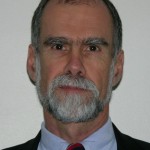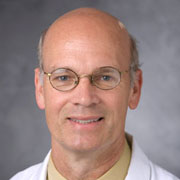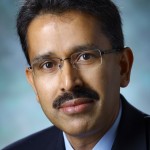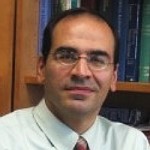Description
The report will cover practical aspects of CT radiation dose optimization and error prevention for practicing physicians and other healthcare providers, physicists, and technologists. General aspects of CT dose descriptors, image quality, and dose optimization principles will be described. Specific aspects of dose optimization in head, chest, abdominal, and pelvic CT for adults and children will be illustrated with emphasis on practical strategies and techniques. Another unique aspect of the report will be on error prevention in CT imaging and how to define, commission and audit CT protocols systematically, which has not been well covered in published literature on the subject. Additionally, a detailed “Frequently Asked Questions” section will be included.
Support
Centers for Disease Control and Prevention
Membership

Mannudeep K.S. Kalra
is an Assistant Radiologist at the Massachusetts General Hospital Imaging's Divisions of Thoracic Imaging and Cardiac Magnetic Resonance, Computed Tomography (CT), and Positron Emission Tomography Program. He is also an Assistant Professor of Radiology with the Harvard Medical School. Dr. Kalra received both an MBBS and an MD from the Government Medical College and Hospital. He performed his residency at the Government Medical College and Hospital and the Sanjay Gandhi Post-Graduate Institute of Medical Sciences. In addition to his clinical work in chest and cardiac imaging, Dr. Kalra has keen interest in research pertaining to CT technology, radiation dose reduction, CT virtual autopsy, image post-processing and radiology informatics. Dr. Kalra has won numerous awards from majorradiology national and international societies for his work related to CT radiation dose. |

EDWIN M. LEIDHOLDT, JR. is currently the Director of the National Health Physics Program, Veterans Health Administration (VHA), U.S. Department of Veterans Affairs (VA). His areas of interest include technical quality assurance and radiation dose management in medical imaging. He is a diplomate of the American Board of Radiology in Medical Nuclear Physics and Diagnostic Radiological Physics and is a Fellow of the American College of Radiology. He received a PhD in Nuclear Engineering, a Master of Applied Mathematics, a Master of Engineering in Nuclear Engineering, and a BS in Nuclear Engineering, all from the University of Virginia. He has served as a Radiation Safety Officer at two VA medical centers, as technical director of nuclear medicine at one, as the Radiation Safety Program Manager for the former VHA Western Region, and as Program Manager for the VHA National Health Physics Program. He is a Clinical Associate Professor of Radiology at the University of California, Davis. He is a co-author of several scientific papers and abstracts, one textbook chapter, and one textbook, in its third edition. He has been a Council member since 2006. He served on the scientific committee that wrote NCRP Report No. 165, Responding to a Radiological or Nuclear Terrorism Incident: A Guide for Decision Makers, and on the committee that prepared NCRP Statement No. 11. Dr. Leidholdt served as a surface line officer in the U.S. Navy from 1971 until 1975. |

ANDREW J. EINSTEIN
is a cardiologist and cardiac imager at Columbia University Irving Medical Center and New York-Presbyterian Hospital. He is a tenured professor of medicine, with appointments in the Departments of Medicine and Radiology, and serves as Director of Nuclear Cardiology, Cardiac Computed Tomography (CT), and Cardiac Magnetic Resonance Imaging (MRI) and Director of the Advanced Cardiac Imaging Fellowship. Born and raised in New Jersey, Dr. Einstein received an AB in mathematics from Princeton University and attended Mount Sinai School of Medicine, where he received an MD as well as a PhD in the Department of Biomathematical Sciences. He also received an MS in patient-oriented research/biostatistics from Columbia's Mailman School of Public Health. After internship and residency in internal medicine at Rutgers Robert Wood Johnson Medical School, he completed cardiology fellowship training at Mount Sinai. Dr. Einstein’s clinical activities are centered on cardiovascular positron emission tomography, single-photon emission computerized tomography, CT, and MRI, and he serves as an attending clinical cardiologist caring for patients with a range of cardiovascular diseases including coronary artery disease, heart failure, valvular heart disease, and arrhythmias. His research, which uses each of these imaging modalities, focuses on improving the use of imaging in cardiovascular medicine, with particular interests and funded projects in radiological protection, amyloidosis, COVID-19, machine learning, and device development. It is funded by multiple National Institutes of Health (NIH) grants, the International Atomic Energy Agency, and industry. Dr. Einstein is the author or coauthor of over 300 papers and abstracts, in journals including the New England Journal of Medicine, Journal of the American Medical Association, and Lancet. This work has been influential in affecting clinical practice, and has been widely reported in the popular media and cited over 15,000 times in the scientific literature. For it, Dr. Einstein received the Society of Nuclear Medicine and Molecular Imaging’s 2022 Hermann Blumgart Award, the American College of Cardiology's Douglas P. Zipes Distinguished Young Scientist Award, and the Lewis Katz Cardiovascular Research Prize for a Young Investigator. Dr. Einstein is a Council Member of NCRP, chair of the Academic Cardiology Section of the American College of Cardiology, and a member of the boards of directors of the American Society of Nuclear Cardiology and the Cardiovascular Council of the Society of Nuclear Medicine and Molecular Imaging. He serves as a member of the Nuclear Regulatory Commission’s Advisory Committee for the Medical Use of Isotopes, on the editorial boards of Journal of the American College of Cardiology: Cardiovascular Imaging and the Journal of Nuclear Cardiology, and served as a voting member of the Food and Drug Administration’s Medical Imaging Drugs Advisory Committee, on several NIH study sections, and as a co-author of the International Commission on Radiological Protection Publication 120 on radiological protection in cardiology. Dr. Einstein has served as a mentor to over 40 trainees at stages ranging from high school to junior faculty. |

Donald P. Frush is the John Strohbehn Professor of Radiology, and an Associate Faculty Member, Medical Physics Graduate Program at Duke University Medical Center. Dr. Frush earned his undergraduate degree from the University of California Davis, MD from Duke University School of Medicine, was a pediatric resident at University of California San Francisco, completed a radiology residency at Duke Medical Center, and a fellowship in pediatric radiology at Children’s Hospital in Cincinnati. Professional roles included more than 25 y on the Duke Medical Center faculty, with a subsequent nearly 2 y appointment as a Professor of Radiology at Lucile Packard Children’s Hospital at Stanford. He returned to Duke in 2020. Dr. Frush’s research interests are predominantly involved with pediatric body computed tomography (CT), including technology assessment, techniques for pediatric CT examinations, assessment of image quality, radiation dosimetry, and radiation protection and risk communication in medical imaging. Other areas of investigation include CT applications in children and patient safety in radiology. |

MAHADEVAPPA MAHESH is the Professor of Radiology and Medicine at the Johns Hopkins University School of Medicine, Baltimore, Maryland. He is also the Chief Physicist at the Johns Hopkins Hospital in Baltimore. He is also the Professor of Environmental Health and Engineering at the Johns Hopkins Bloomberg School of Public Health. Dr. Mahesh obtained his PhD in Medical Physics from Medical College of Wisconsin, Milwaukee. Dr. Mahesh is board certified from the American Board of Radiology in diagnostic radiological physics and is a member of the Radiation Control Advisory Board for the State of Maryland. His research interests are in medical imaging, particularly in areas of multiple-row detector computed tomography (MDCT), interventional fluoroscopy, and digital mammography. As chief physicist, he oversees the quality assurance program for the diagnostic radiology that includes maintaining compliance with regard to state and federal regulations and ensuring safe use of radiation to patients. He often provides counsels to patients concerned over their radiation exposure from diagnostic x-ray examinations. Dr. Mahesh is the editor of the Physics Columns (Technology Talk and Medical Physics Consult) for the Journal of American College of Radiology (JACR) since 2007. He is also the Associate Editor of JACR, Deputy Editor for Academic Radiology, Editorial Board Member for RadioGraphics and Radiology journals. He is the Treasurer for the American Association of Physicists in Medicine (AAPM) and board member of the Society of Cardiovascular Computed Tomography (SCCT). He is a fellow of the AAPM (2007), ACR (2009), American College of Medical Physics (2011), and SCCT (2011). Dr. Mahesh has been invited to be the United Nations-International Atomic Energy Agency (UN-IAEA) expert to participate in IAEA activities. Dr. Mahesh is the author of the textbook titled MDCT Physics: The Basics – Technology, Image Quality and Radiation Dose. He publishes and lectures extensively here in the United States and internationally in the area of MDCT technology, radiation doses in medical imaging, and other medical physics areas. Dr. Mahesh is on the NCRP Council and was a member of NCRP Scientific Committee (SC) 6-2 that published NCRP Report No. 160, Ionizing Radiation Exposure of the United States Population. He is the co-chair of NCRP SC 4-9 on Medical Exposure of the U.S. population. |

EHSAN SAMEI is a tenured Professor of Radiology, Medical Physics, Biomedical Engineering, Physics, and Electrical and Computer Engineering at Duke University, where he also serves as the director of Carl E. Ravin Advanced Imaging Laboratories and the founding director of the Clinical Imaging Physics Group. His expertise includes x-ray imaging, theoretical imaging models, simulation methods, and experimental techniques in medical image formation, analysis, assessment, display and perception. His current research includes methods to develop image quality and dose metrics that are clinically relevant and that can be used to design and utilize advanced imaging techniques towards optimum interpretive, quantitative and molecular performance. The main modalities of interest are computed tomography and tomosynthesis for breast, lung and abdominal imaging applications. He has been the recipient of 24 extramural grants, and has over 140 referred papers. He is certified by the American Board of Radiology, is a fellow of the American Association of Physicists in Medicine (AAPM), and is a fellow of the International Society of Optical Engineering (SPIE). He was the founding Director of the Graduate Studies of the Duke Medical Physics Graduate Program. He has held leadership positions in the AAPM, the SPIE, and the Society of Directors of Academic Medical Physics Programs, and was appointed to the NCRP and serves on Program Area Committee 4. |
 John Boone, Consultant John Boone, Consultant |
 Michael McNitt-Gray, Consultant Michael McNitt-Gray, Consultant |


 News & Events
News & Events